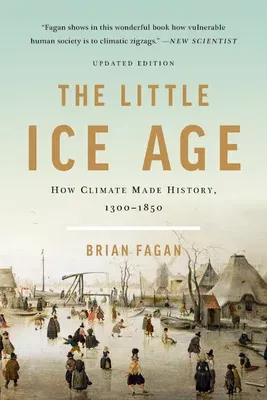Brian Fagan
(Author)The Little Ice Age: How Climate Made History 1300-1850 (Revised)Paperback - Revised, 26 November 2019

Qty
1
Turbo
Ships in 2 - 3 days
Only 3 left
Free Delivery
Cash on Delivery
15 Days
Free Returns
Secure Checkout

Print Length
288 pages
Language
English
Publisher
Basic Books
Date Published
26 Nov 2019
ISBN-10
1541618599
ISBN-13
9781541618596
Description
Product Details
Author:
Book Edition:
Revised
Book Format:
Paperback
Country of Origin:
US
Date Published:
26 November 2019
Dimensions:
20.83 x
13.72 x
2.03 cm
ISBN-10:
1541618599
ISBN-13:
9781541618596
Language:
English
Pages:
288
Publisher:
Weight:
249.48 gm